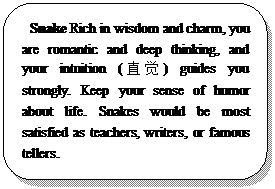题目内容
Is the world really going mad? 1._____day I was sittng in a restaurant 2._____ a quick drink and a talk with a few friends when it suddenly 3._____ me that almost everyone in the restaurant was smoking. It wasn’t long 4._____ the whole room was 5._____ with smoke. I asked with an apology for 6._____ to open a window to stop myself 7._____!
Nowadays air pollution is something that hardly question any more. However, I still can’t walk down the street in any of the big cities without 8._____ that people are 9._____ the air pollution. It is time for the government departments of the world to introduce emission(废气排放) controls on all cars and 10._____ the public transport system(公共交通体系) to encourage people to 11._____ their cars at home. A friend of mine takes flying lesson each morning and it really makes him 12._____ when he climbs above the smog layer(烟雾) and looks down 13._____ it and thinks: “I’m breathing that!” This kind of 14._____ results from the bad management of resources. Waste things can 15._____ should, be treated properly. House building, road 16._____, and industrial development are all earthmoving(or earth-reducing) operations and can change the balances of 17._____ created over millions of years. I would like to 18._____serious studies done on all these main works before they are built. Also, there should be 19._____ national parks set up to keep the most beautiful parts of our countries in their natural 20._____.
.A.The other B. Another C. Every D. Each
.A.asking for B. drinking C. having D. buying
.A.seemed B. struck C. sank D. showed
.A.ago B. after C. before D. now
.A.full B. filled C. crowed D. parked
.A.promise B. help C. suggestion D. permission
.A.standing B. sitting C. talking D. dying
.A.thinking B. persuading C. deciding D. learning
.A.suffering B. dying C. walking D. standing
.A.increase B. reduce C. improve D. raise
.A.wash B. repai C. drive D. leave
.A. sick B. tired C. foolish D. excited
.A.on B. at C. from D. for
.A.discussion B. question C. pollution D. operation
.A.but B. yet C. still D. and
.A.work B. construction C. building D. setting
A.life B. mind C. human being D. plants
A.see B. start C. enjoy D. pay
A.few B. any C. more D. no
A.situation B. states C. soils D. place
【小题1】B
【小题2】C
【小题3】A
【小题4】C
【小题5】D
【小题6】C
【小题7】A
【小题8】D
【小题9】B
【小题10】A
【小题11】 D
【小题12】C
【小题13】C
【小题14】A
【小题15】B
【小题16】D
【小题17】D
【小题18】B
【小题19】A
【小题20】C
解析:
作者通过生活中所遭受的烟雾的侵扰,联想到了污染的危害性,进而呼吁国家应大力采取措施来保护环境,尽力使其处于自然状态。
【小题1】the other day意为“几天前”,可以用作状语。
【小题2】四个选项中只有have可以同时后接a drink和a talk这样两个宾语。
【小题3】it 为形式主语,that从句为真主语从句,全句意为“餐馆里几乎每个人都在抽烟,此事突然引起了我的注意”。A、C不能接人,应予排除,show表示人为地展示给他人看,在此不合语境。
【小题4】it is not long before …是一个句型,表示没过多久就……,由此可以看出烟雾之大。
【小题5】根据意义和搭配不难选定。
【小题6】ask for permission意为“请求允许”,其他三个选项不合逻辑。
【小题7】这里有点夸张的味道,从句末的感叹号上也能体会出作者当时的心情。
【小题8】这里的双重否定表示“一上街就自然地…”。B、C、D三项明显不合逻辑。
【小题9】从词语搭配角度考虑。
【小题10】只有真正地“改善了公共交通系统,才能使市民弃用私车”。
【小题11】目的就是要鼓励人们把车“停放”在家中。
【小题12】由于高空中的烟雾,作者朋友在上飞行课时自然会感到身体,尤其是眼睛不舒服,由作者朋友的心理活动I’m breathing that也可作出这种推断。
【小题13】在高处向下看物体应用look down at sth。
【小题14】空中的烟雾应该视作一种“污染”。
【小题15】此处为递进关系,表示“能且应该”,故用and。
【小题16】道路应用“建设(construction)”。building表示房屋的“建筑”,应排除。
【小题17】另三个选项不能概全。
【小题18】这里表达的是作者的一种愿望。
【小题19】作者意思是指要通过建公园来保护环境。根据意义不难排除另三个选项。
【小题20】保持自然状态以用states为好。

Steve and Yaser first met in their chemistry class at an American university. Yaser was a(an) 36 student from Jordon. He wanted to learn more about American culture and hoped that he and Steve would become good friends. At first, Steve seemed very friendly. He always 37 Yaser warmly before class. Sometimes he 38 invited Yaser to eat lunch with him. But Steve seemed 39 after the first term was over. The two 40 classmates didn’t see each other very much at school. One day Yaser decided to call Steve. Steve didn’t seem very 41 in talking to him. Yaser was hurt by Steve’s change of 42 . “Steve said we were friends, ”Yaser complained(抱怨), “and I thought friends were friends 43 . ”Yaser is a little 44 . As a foreigner, he doesn’t understand the way Americans 45 friendship. Americans use the wor“friend”in a very 46 way. They may call both casual acquaintances(相识的人)and close 47 “friends”. These friendships are 48 on common interests. When the 49 activity ends, the friendship may fade. Now as Steve and Yaser are no longer classmates, their“friendship”has changed. In some cultures friendship 50 a strong life-long connection between two people. In these cultures friendships develop slowly, since they are built to 51 . American society is one of 52 change. Studies show that one out of five American families moves every year. American friendships develop quickly, and they may change just 53 quickly. Americans may at first seem friendly. But American friendliness is not always a(an) 54 of true friendship. Learning how Americans look at friendship can help non-Americans 55 misunderstandings.
| B. native | C. international | D. home |
| B. welcomed | C. invited | D. received |
| B. even | C. never | D. seldom |
| B. helpful | C. grateful | D. distant |
| B. normal | C. unusual | D. ordinary |
| B. shocked | C. interested | D. disappointed |
| B. relation | C. opinion | D. attitude |
| B. for once | C. for a time | D. for a while |
| B. confused | C. frightened | D. impressed |
| B. form | C. view | D. like |
46. A. general | B. unique | C. usual | D. strict |
47. A. relatives | B. companions | C. classmates | D. workmates |
48. A. depended | B. based | C. focused | D. set |
49. A. shared | B. connected | C. combined | D. chosen |
50. A. contains | B. damages | C. includes | D. means |
51. A. enjoy | B. last | C. appreciate | D. value |
52. A. slow | B. steady | C. rapid | D. similar |
| B. too | C. as | D. so |
| B. offer | C. advice | D. idea |
| B. ignore | C. forbid | D. forgive |
Steve and Yaser first met in their chemistry class at an American university. Yaser was a(an) 36 student from Jordon. He wanted to learn more about American culture and hoped that he and Steve would become good friends. At first, Steve seemed very friendly. He always 37 Yaser warmly before class. Sometimes he 38 invited Yaser to eat lunch with him. But Steve seemed 39 after the first term was over. The two 40 classmates didn’t see each other very much at school. One day Yaser decided to call Steve. Steve didn’t seem very 41 in talking to him. Yaser was hurt by Steve’s change of 42 . “Steve said we were friends, ”Yaser complained(抱怨), “and I thought friends were friends 43 . ”Yaser is a little 44 . As a foreigner, he doesn’t understand the way Americans 45 friendship. Americans use the wor“friend”in a very 46 way. They may call both casual acquaintances(相识的人)and close 47 “friends”. These friendships are 48 on common interests. When the 49 activity ends, the friendship may fade. Now as Steve and Yaser are no longer classmates, their“friendship”has changed. In some cultures friendship 50 a strong life-long connection between two people. In these cultures friendships develop slowly, since they are built to 51 . American society is one of 52 change. Studies show that one out of five American families moves every year. American friendships develop quickly, and they may change just 53 quickly. Americans may at first seem friendly. But American friendliness is not always a(an) 54 of true friendship. Learning how Americans look at friendship can help non-Americans 55 misunderstandings.
36. A. American | B. native | C. international | D. home |
37. A. greeted | B. welcomed | C. invited | D. received |
38. A. ever | B. even | C. never | D. seldom |
39. A. familiar | B. helpful | C. grateful | D. distant |
40. A. former | B. normal | C. unusual | D. ordinary |
41. A. excited | B. shocked | C. interested | D. disappointed |
42. A. mind | B. relation | C. opinion | D. attitude |
43. A. for ever | B. for once | C. for a time | D. for a while |
44. A. delighted | B. confused | C. frightened | D. impressed |
45. A. express | B. form | C. view | D. like |
46. A. general | B. unique | C. usual | D. strict |
47. A. relatives | B. companions | C. classmates | D. workmates |
48. A. depended | B. based | C. focused | D. set |
49. A. shared | B. connected | C. combined | D. chosen |
50. A. contains | B. damages | C. includes | D. means |
51. A. enjoy | B. last | C. appreciate | D. value |
52. A. slow | B. steady | C. rapid | D. similar |
53. A. very | B. too | C. as | D. so |
54. A. suggestion | B. offer | C. advice | D. idea |
55. A. avoid | B. ignore | C. forbid | D. forgive |



 C D
C D

